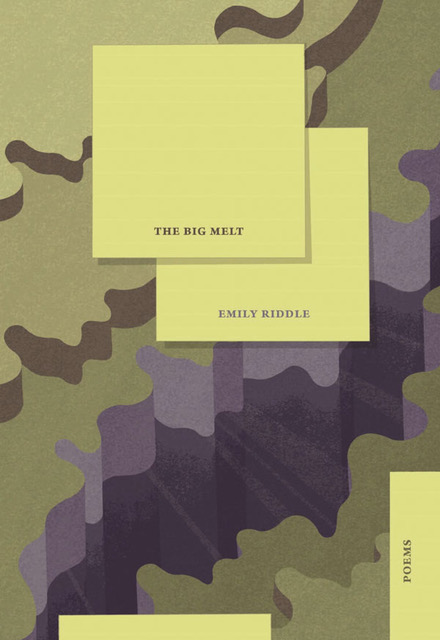Emily Riddle’s debut book opens with “Tell Me Why,” a poem containing the overall spirit of the collection—Indigenous language reclamation and queer joy; an invitation to learn nêhiyawêwin and a representation of thinking in both English and nêhiyawêwin. I grew up in Edmonton and studied more nêhiyawêwin than my own language, Dënë Sųłınë́. So when I first read this poem without looking at the Cree dictionary app on my phone, I guessed the word apisci-kahkâkîsak correctly as “magpie.” But then I was confused by my initial interpretation of mostosak (“buffalo”). I thought it might be a nickname for a lover, but when reading it over the poem becomes far more complex. “i want to believe apisci-kahkâkîsak, mostosak and i will all drink iced tea on a porch together,” writes Riddell, “make light of all that has transpired, talk about the women we have loved.”
I first read The Big Melt while on a plane to Fort Smith from Edmonton while feeling a little lovesick but excited to spend two weeks learning Dënë Sųłınë́. Back in the day a colonizer wrote a poem about how fallow Fort Smith appeared from the plane. How funny, I thought, that now, here I am, a queer Indigenous scholar reading another queer Indigenous woman’s book of poetry on the flight to my ancestral home. A place of northern lights and moose meat, bannock, Klik, and where all the stop signs have Indigenous languages on them.
The Big Melt engages with oncoming climate disaster, but I was pleasantly surprised to find that it is also a meditation on love, queer romance and grief. Riddle writes about her loving relationship with her mother and her mother’s fight with cancer. As someone who has struggled with mommy issues as a result of intergenerational traumas, it was both inspiring and nurturing to read Riddle’s tender moments with her mother.
Some of the poems depict the author living and travelling between two cities, holding a position as a scholar of Indigenous literatures. With references to Dwayne Donald and Leroy Little Bear, we are provided with important teachings from these knowledge keepers. For me, Riddle’s position and her references are all so familiar to my own experiences as a scholar also living between two cities, home (Amiskwaciy) and school (Mohkinstis). Riddle writes that she is not drinking “not because I’m too sacred, or whatever,” and that “drunk aunties are extra sacred,” and the same applies to all our relations. You can be urban Indigenous, scholarly Indigenous, in-recovery Indigenous, enjoying-your-life Indigenous, and still be traditional and sacred in your own way. The Big Melt is a wonderful testament of Indigenous joy. I look forward to teaching it in the future.
Kaitlyn Purcell is a Ph.D. candidate at the U of C.
_______________________________________


